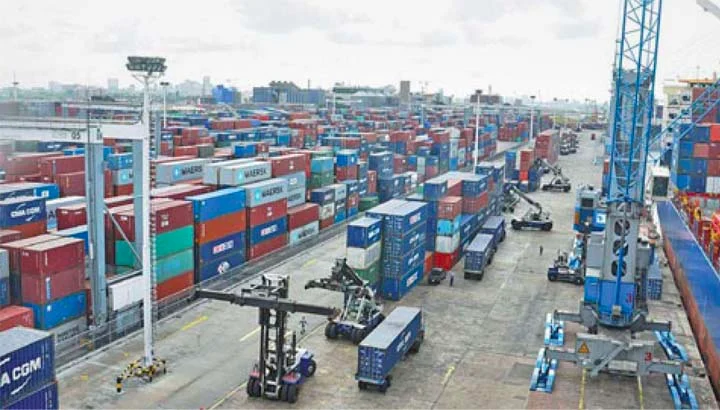Breaking News
Federal government confirms Nigeria imports 25m litres of petrol daily
The National Association of Road Transport Owners, NARTO, had last week warned that the ban would cost them over N300 billion invested in procuring over 2,000 units of 60,000 litres capacity trucks currently involved in the transportation of petroleum products across the country.

The Federal Government on Wednesday disclosed that Nigeria’s petrol consumption has dropped to 50 million litres per day with local refineries supplying half of the daily requirements.
The government said the other half is being sourced through importation. It clarified that none of the companies involved in domestic refining was involved in the importation.
Speaking to journalists after a stakeholders meeting in Abuja, Executive Director of Distribution Systems, Storage and Retailing Infrastructure, Nigerian Midstream and Downstream Petroleum Regulatory Authority, NMDPRA, Mr. Ogbugo Ukoha said petrol importation became necessary to ensure that scarcity does not return to the downstream sector.
“Let me speak a little bit about supply. All of us have experienced a yuletide free of any scarcity and let me just reconfirm that from year to year we saw an increase in the demand for PMS by 2021, 2022 up to 2023 just before the current administration came in. The daily PMS supply sufficiency was always more than 60 million, in fact averaging about 66 million a day for PMS. And following Mr. President’s withdrawal of subsidy, the announcement on May 29th, 2023, we immediately saw a steep decline in consumption and between then and as we speak, we’ve continued to do plus or minus 50 million.
“Of these 50 million liters averaging for each day, less than 50% of that is contributed by domestic refineries and so the shortfall in accordance with the PIA (Petroleum Industry Act) is sourced by way of imports”.
Ukoha also disclosed that the Authority has banned 60,000 litres capacity tankers from transporting petrol and other petroleum products beginning March 1, 2025.
The ban was imposed by the Nigerian Midstream and Downstream Petroleum Regulatory Authority, NMDPRA, despite protests from truck owners.
The National Association of Road Transport Owners, NARTO, had last week warned that the ban would cost them over N300 billion invested in procuring over 2,000 units of 60,000 litres capacity trucks currently involved in the transportation of petroleum products across the country.
Ukoha said tankers with 60,000 litres capacity were responsible for some of the recent spike in petrol tanker fires in the country.
Ukoha also noted that the high-calibre tankers also had a major impact on the state of Nigerian roads.
He said: “The breaking news about that today is that in today’s meeting comprising DSS, FEMA, Federal Fire Service, Road Safety, NATO, NUPENG, MEMAN, PETROAN, IPMAN, DAPMAN, SON, ONSA, it was decided that beginning 1st March, any truck with an axle load that is carrying more than 60,000 litres of hydrocarbon will not be allowed to load at any loading depot.
“Let me repeat, beginning 1st March, trucks with a capacity in excess of 60,000 litres will not be allowed to load in any loading depot for petroleum products. By Q4 of 2025, we will also preclude the loading or transportation of petroleum products on any truck in excess of 45,000 litres. So that is the breaking news for today”.










